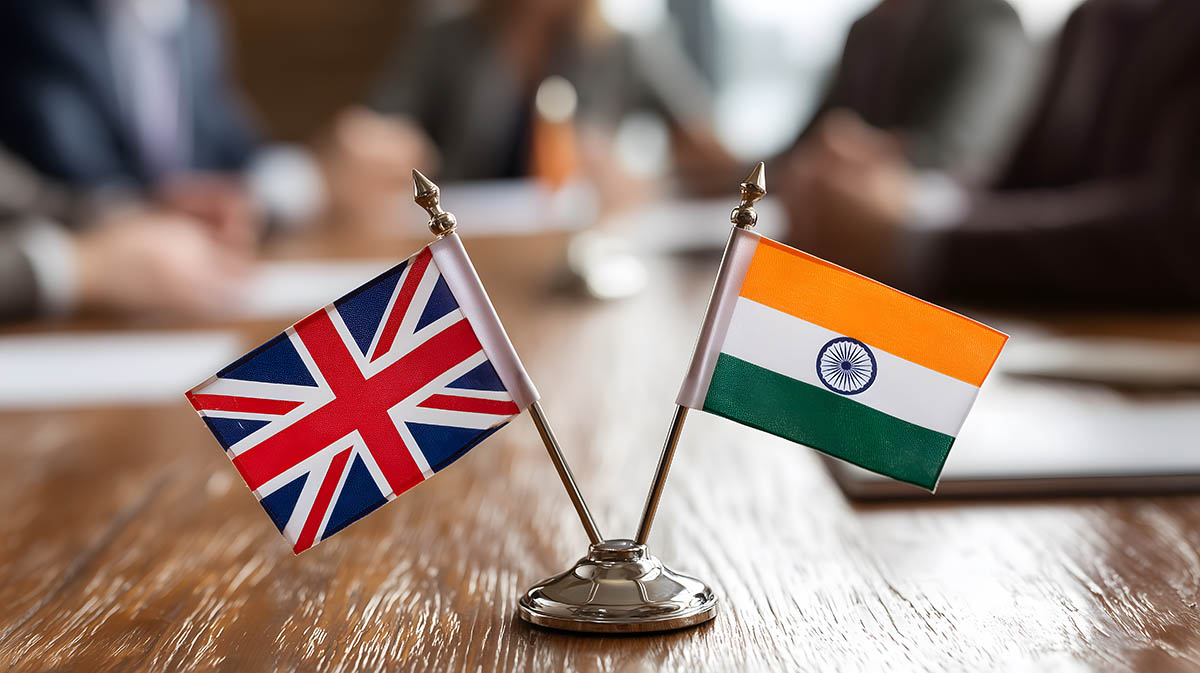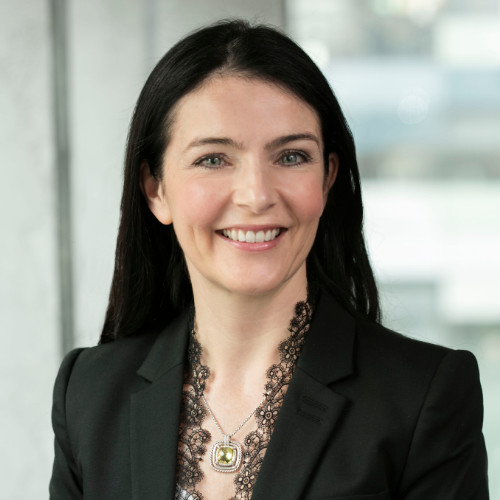We have updated our Privacy Policy, click here for more information.
Thank you

Victoria Shanks
|
 |
Three weeks ago, I got a call from an unrecognised mobile number. It was the Cabinet Office Visits and Protocol Team. I was told I’d been selected, vetted, and approved to join a senior ministerial trade delegation to India.
I asked a few basic questions such as who else was going, flight details, and general logistics, but the standard reply was, “we can’t share that for security reasons.” I asked them to send whatever they could. Moments later, an email arrived with a stack of highly official documents issued by the Cabinet Office on behalf of The Crown. The terms, privacy rules, and travel protocols were laid out in full.
I rang Andy Colhoun whose first reaction was, “Are you sure this isn’t a scam?” David Collins, without hesitation, said, “You have to go!” I was about to sign the terms and conditions but decided to make one final check. I called the Department for Business and Trade in Belfast, and of course, they knew all about it. I was one of four representatives from Northern Ireland.
Over the next two weeks, information came through slowly. Then, four days before departure, I finally received a draft itinerary confirming I would be accompanying the Prime Minister and the Secretary of State for Business and Trade to Mumbai.
It was surreal to list contacts at 10 Downing Street as my point of contact. I was instructed to go in person to India House in London. When I arrived, I had to hand over my phone. Then came another curveball: the visa fee had to be paid in cash. I left to find an ATM, returned with cash, and 15 minutes later, the visa was approved. At this stage, I was half expecting Ant & Dec to jump out and tell me it was all a social experiment.
More updates followed. We received detailed instructions for accessing the private departure lounge. There was no flight number, just “Trade Visit to Mumbai.” Once at the airport, the rope was lifted for us, and we entered the secure lounge. Around 30 members of the media were travelling with us, busy discussing embargo timings.
Then came another surprise when we were asked to disembark. The Prime Minister and his entourage arrived. A group photo was taken, then we re-boarded. The captain handed the mic to the PM, who welcomed us from the cockpit, before the Cabinet Office team collected all our passports.
Nine hours later, we touched down in Mumbai to a red carpet reception flanked by military personnel saluting us. We didn’t even enter the airport as we were bused directly to the hotel. On the bus, I had a brief moment of panic, realising I’d checked a bag, but then spotted a van ahead marked “luggage.” My bag arrived at the hotel before I did.
Our convoy of around ten vehicles was blue-lighted through Mumbai with no traffic. The streets were lined with people waving flags, and posters of both the British and Indian Prime Ministers lined the route. On arrival at the Taj Mahal Palace Hotel, we didn’t check in, we were handed VIP passes at the door and sent straight to our rooms, with two hours to spare before the first engagement.
The opening event was held on the famous staircase beneath the dome, the site of the 2008 terror attacks. Sir Keir Starmer gave opening remarks to the media. Then into the ballroom, where the PM mingled with the 126-strong delegation and posed for selfies. This was followed by an Indian government session and a guided tour of the hotel with a Mumbai historian.
We then broke into sector roundtables. I was in the FSI group alongside the CEOs of LSEG, Revolut, HSBC, Barclays, Standard Chartered, and NatWest Markets, chaired by the British Trade Commissioner for South Asia. Next came a session with British and Indian diplomats chaired by Peter Kyle, Secretary of State for Business and Trade.
Dinner followed with a room full of incredible people, some of whom I can now call friends. I met CEOs from BA, BP, BT, Virgin, and many more. The delegation was incredibly diverse: film and entertainment organisations like the Royal Shakespeare Company, National Theatre, and Warner Bros; sports figures including the Premier League who have just opened an Indian office; clean energy innovators; AI and quantum computing firms; and several universities, including Queen’s University Belfast, who are opening a campus in GIFT City in 2026.
We got our passports back just in time for a select group to attend the Indian Prime Minister’s address at the Global FinTech Fest. The Ministers hosted a nightcap by the pool to close out the evening.
The next morning, we checked out and travelled to the FinTech event, which draws 100,000 attendees. The public queue stretched for miles, but our group was ushered straight in. The UK delegation took part in a panel discussion on the India–UK Economic and Trade Agreement, then we were given VIP wristbands and escorted to reserved seating for the British and Indian Prime Ministers’ keynote addresses.
Security was intense and tightly choreographed. We had to be seated hours in advance. Once in, the room was sealed and no one was allowed to leave. We got a fascinating insight into the CEO-level bilateral meetings happening behind the scenes. After the inspirational speeches by both PMs, the room remained sealed until they exited the building.
The evening events took place on a rooftop bar, where the delegation mingled with Indian leaders from industry, education, and sport. A legendary cricketer posed for selfies with admirers, and the Prime Minister gave closing remarks.
Then it was time to leave. We were blue-lighted back to the airport and again fast-tracked directly to the aircraft. After takeoff, the PM and his team did a cabin walkabout, and more photos were taken.
The atmosphere on the flight home was electric. Even though we should have been exhausted, everyone kept sharing stories and swapping connections. As we landed, there was a unanimous feeling that it had all ended too soon, and talk immediately turned to reunion events.
What an experience. A huge thank you to the Department for Business and Trade for making it all happen.